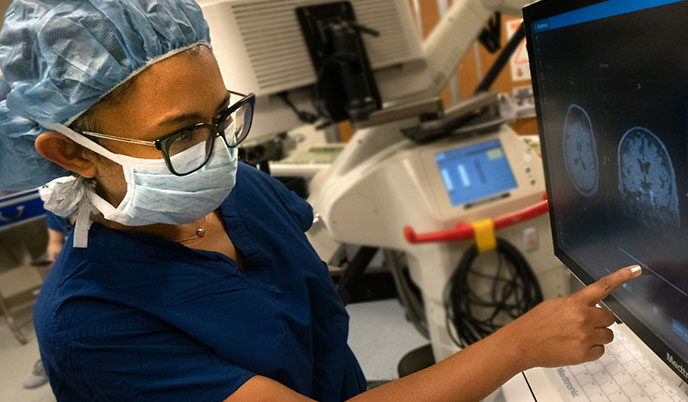
Q&A: Mahua Dey explores glioblastoma vaccine
Dr. Mahua Dey is an associate professor in the Department of Neurological Surgery and the director of the surgical neuro-oncology program in the University of Wisconsin School of Medicine and Public Health. She specializes in the surgical management of both benign and malignant brain tumors.

FDA fast-tracks therapy for radiation-induced dry mouth
A therapy under development at the University of Wisconsin School of Medicine and Public Health to treat a common side effect of radiation therapy recently got a boost from the Food and Drug Administration.

AI screening tool helps refer patients for opioid use disorder treatment
An artificial intelligence-driven screening tool developed by a research team at the University of Wisconsin School of Medicine and Public Health successfully identified hospitalized adults at risk for opioid use disorder and recommended referral to inpatient addiction specialists.
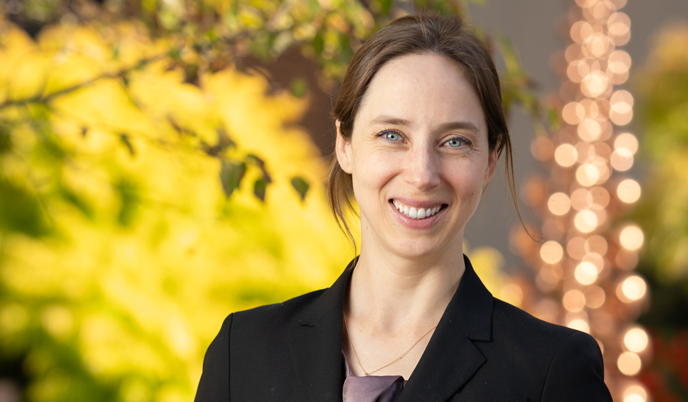
Q&A: Sara McCoy on innovative treatment for Sjögren’s disease
Dr. Sara McCoy, a rheumatologist in the Department of Medicine, is one of the nation’s leading experts on Sjögren’s disease, an autoimmune disorder that affects moisture-producing glands in the eyes, mouth and other parts of the body.
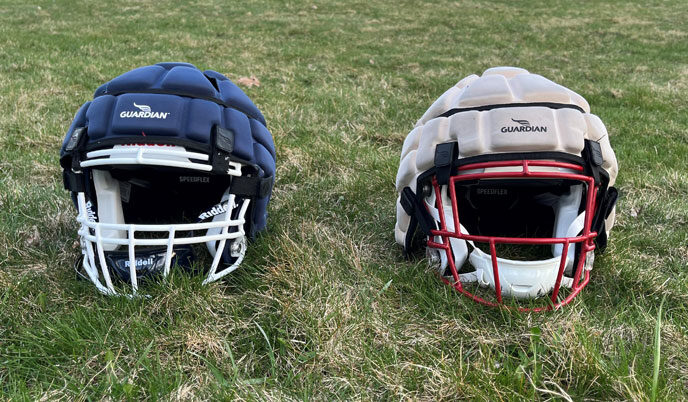
Football helmet covers do not reduce concussions for high school players
A study of 2,610 Wisconsin high school football players found that wearing soft-shell helmet covers, marketed as Guardian Cap helmet devices, during practice had no effect on the rates of sports-related concussions.
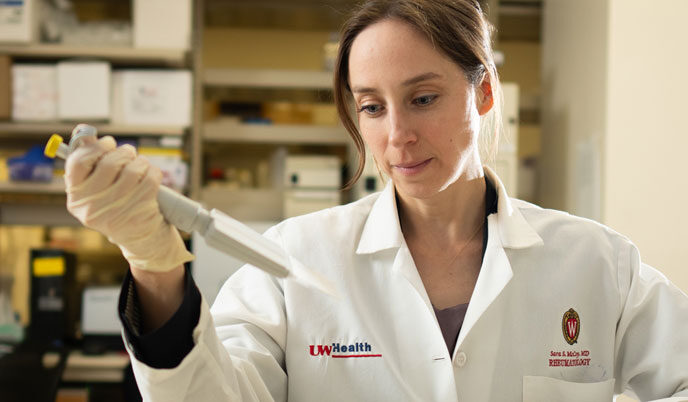
Experimental cell therapy trial treats first Sjögren’s disease patient
The first person in the world to receive a dose of a novel cell therapy for a symptom of the immune disorder Sjögren’s disease has been treated during a clinical trial conducted by researchers at the University of Wisconsin School of Medicine and Public Health.

Examining a climate-induced global health crisis
As dusk settles over Paris, those who wander the city streets hear the clattering sounds of shutters and windows closing. Richard Keller, a professor of medical history and bioethics who has studied 21st century Paris heat waves, has noticed this routine even on the hottest evenings, even in homes without air conditioning.
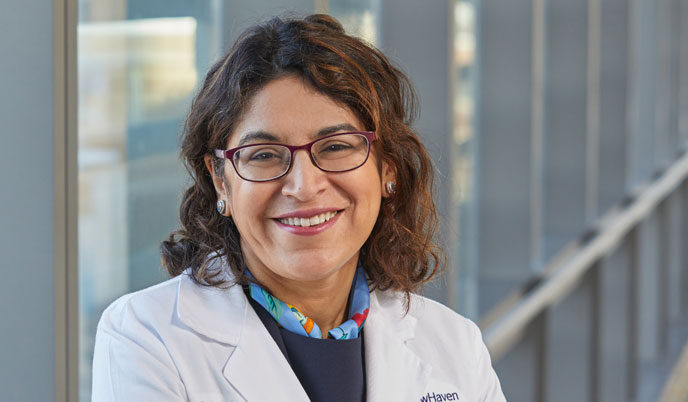
Dr. Nita Ahuja announced as next dean of the UW School of Medicine and Public Health
Nita Ahuja, MD, MBA, FACS, a surgeon-scientist who has held top roles at some of the nation’s leading research universities and health systems, will lead the University of Wisconsin School of Medicine and Public Health and serve as the university’s next vice chancellor for medical affairs.
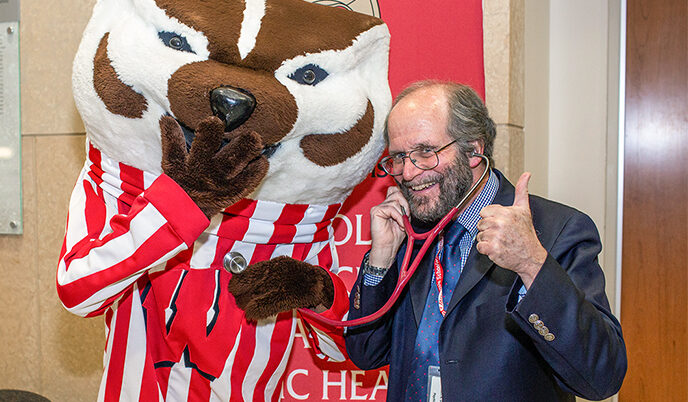
Dean Golden: A legacy of excellence
For 19 years, Golden has been leading as a bridge-builder and mentor, creating a collaborative, inclusive environment where ideas flourish and faculty and staff are empowered to lead.

A path for safer opioid prescribing
An approach to prescribing opioids that pairs clinician education with patient-centered monitoring and feedback could help primary care doctors minimize prescribing opioid medications to manage patients’ chronic pain, according to a University of Wisconsin–Madison research team.
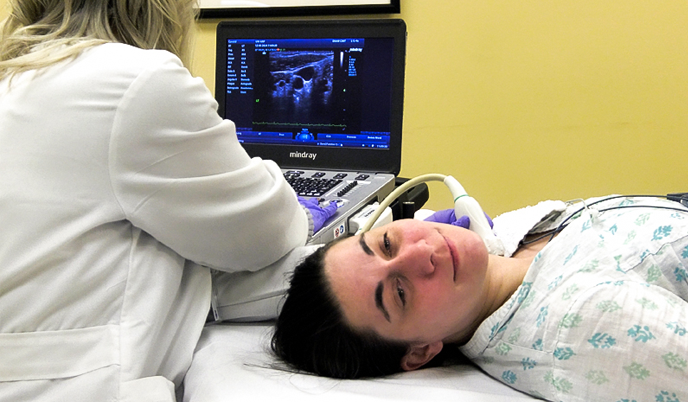
Study launches to test effects of vaping on cardio-pulmonary health
The National Institutes of Health have awarded a five-year, $5.7 million grant to UW to study the long-term effects of vaping on heart and lung health.
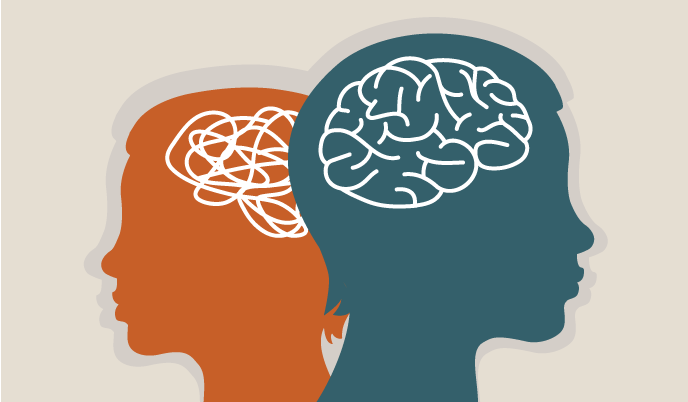
Some childhood traumas may reduce adolescent mental health problems
An analysis of national data by University of Wisconsin School of Medicine and Public Health psychiatry researchers showed that the type of trauma a person experiences could be more impactful than the amount of trauma they encounter in youth.